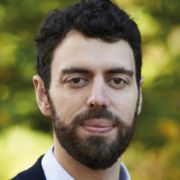
Research Project:
Cosmopolitanism and global solidarity
Abstract:
Cosmopolitanism faces a problem that has to date not been adequately confronted, namely the cosmopolitan solidarity problem. This problem, put simply, recognises the reality that, currently, the global population has little appetite for redistributing resources or for otherwise changing behaviours and practices so as to realise cosmopolitan principles. There are two different versions of this problem. In one, it is assumed that cosmopolitan principles are widely accepted and yet are not being acted upon; the problem is thus largely one of moral motivation (Dobson, 2006; Lenard, 2010). In another version, the problem is not simply one of motivation, but also that cosmopolitan principles are in fact not widely accepted in the first place (Miller, 2000). This problem, in both its forms, is a critical one for cosmopolitan theory, because those who defend cosmopolitan principles consider themselves to be engaged in a normative pursuit, which entails those principles being feasibly realisable. The cosmopolitan solidarity problem imperils the normativity of cosmopolitanism, because it raises the concern that humanity being guided by cosmopolitan principles may in some sense be infeasible.
My year as a Normative Orders Postdoctoral Fellow will be spent investigating theoretical questions that arise in relation to the cosmopolitan solidarity problem, to include:
– In which ways can global solidarity be conceptualised? In other words, which theoretical possibilities for turning the global population toward acceptance of cosmopolitan principles and/or motivating action in accordance with those principles have been – and can be – offered?
– What are the institutional preconditions that these various conceptualisations bring with them?
– Which, if any, appear to have morally troubling consequences?
– Which, if any, appear in the end to be a promising theoretical response to the cosmopolitan solidarity problem
Events:
11 July 2016, 6-8pm
Lecture within the IGP-Kolloquium
-
Biografische Angaben
Luke Ulas achieved his Ph.D. in Political Theory at the London School of Economics and Political Science in 2014. His thesis was titled „Realising Cosmopolitanism: The Role of a World State“. In 2014/15 he was a Justitia Amplificata Postdoctoral Research Fellow at Goethe University Frankfurt.
-
Publikationen
Doing Things By Halves: On Intermediary Global Institutionl Proposals?, Ethics and Global Politics (forthcoming 2016).
Cosmopolitanism, Self-Interest and World Government?, Political Studies (forthcoming 2016).
Transforming (but not Transcending) the State System? On Statist Cosmopolitanism? Critical Review of International Social and Political Philosophy (Online early DOI: 10.1080/13698230.2015.1048071).
Global Community as a Response to the Cosmopolitan Solidarity Problem?, in Henrik Enroth and Douglas Brommesson (eds.) Global Community? Transnational and Transdisciplinary Exchanges (Rowman and Littlefield, 2015).
Miller’s Models and their Applicability to Nations?, Theoria 129: 79?94 (2011)

